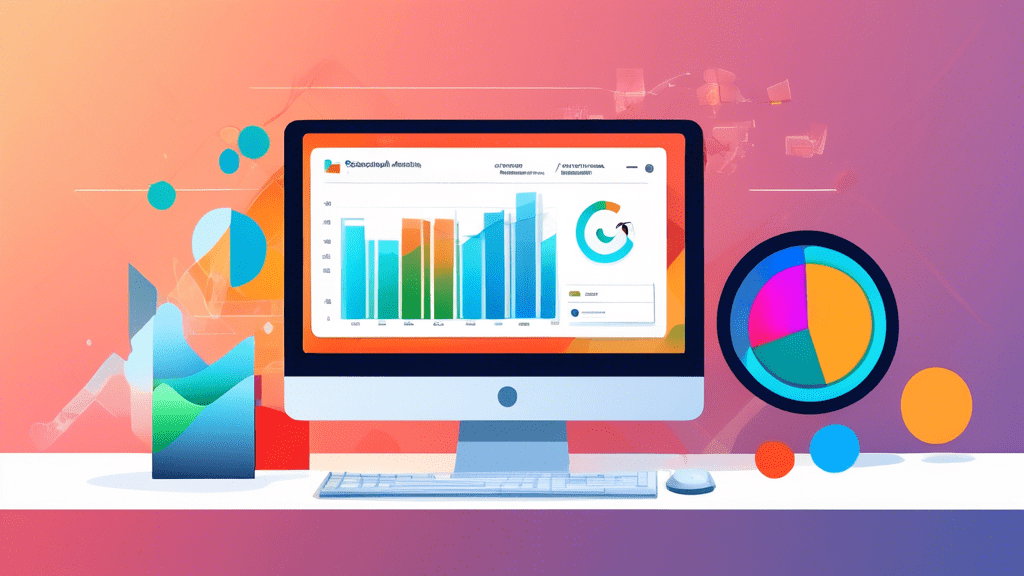What is Google Analytics?
Google Analytics is a powerful web analytics platform that provides website owners with comprehensive data and insights about their website traffic and user behavior. It is a free tool offered by Google that helps businesses understand how users interact with their websites, track their marketing campaigns, and make data-driven decisions to improve their online presence.
Why is Google Analytics Important?
In today’s digital landscape, having access to reliable website data is crucial for success. Google Analytics provides valuable information that can help businesses:
Key Features of Google Analytics
Google Analytics offers a wide range of features and reports that provide insights into various aspects of website performance. Some of the key features include:
1. Real-Time Data
See who is on your website right now, where they are coming from, and what pages they are viewing. This real-time data can be invaluable for monitoring campaigns and website events.
2. Audience Insights
Gain a deep understanding of your website visitors, including their demographics, interests, location, and devices used. This information helps tailor content and marketing efforts to target the right audience.
3. Acquisition Tracking
Identify how users are finding your website, whether it’s through organic search, social media, referrals, or other channels. This data helps optimize marketing strategies and allocate resources effectively.
4. Behavior Tracking
Track how users navigate through your website, what pages they visit, how long they stay, and where they drop off. This information helps identify usability issues and improve website design and content.
5. Conversion Tracking
Measure the effectiveness of your website in driving desired actions, such as form submissions, purchases, or sign-ups. By setting up conversion goals, businesses can track their return on investment (ROI) for different marketing campaigns and website optimizations.
Setting Up Google Analytics
To start using Google Analytics, follow these steps:
1. Create a Google Analytics Account
If you don’t already have one, sign up for a free Google Analytics account at https://analytics.google.com/.
2. Set up Your Property
Once you have an account, you need to set up a property for your website. This involves providing basic information about your website, such as its name, URL, and industry.
3. Install the Tracking Code
Google Analytics provides you with a unique tracking code that needs to be installed on every page of your website. This code is typically added to the header section of your website’s HTML.
4. Configure Goals and Filters
To get the most out of Google Analytics, it’s essential to set up goals and filters. Goals define the specific actions you want users to take on your website, while filters help refine the data you see in your reports.
Understanding Google Analytics Reports
Once you have Google Analytics set up and running, you can access a wealth of data through its various reports. Here are some of the key reports to focus on:
1. Audience Reports
These reports provide insights into your website’s audience, including their demographics, interests, location, and technology used. Use this information to tailor your content and marketing efforts.
2. Acquisition Reports
Acquisition reports show you how users are finding your website, whether it’s through organic search, social media, referrals, or other channels. This data helps you understand which marketing channels are most effective.
3. Behavior Reports
Behavior reports track how users interact with your website, including the pages they visit, the links they click, and the time they spend on each page. This information can help you identify areas for improvement in your website’s design and content.
4. Conversion Reports
Conversion reports show you how effectively your website is converting visitors into customers or leads. This data is essential for measuring the ROI of your marketing campaigns and website optimizations.
Advanced Google Analytics Features
In addition to the core features and reports, Google Analytics offers a range of advanced features, including:
1. Custom Dashboards
Create personalized dashboards to monitor the metrics that matter most to you. This allows you to get a quick overview of your website’s performance at a glance.
2. Custom Reports
Go beyond the standard reports and create custom reports tailored to your specific needs. This allows you to analyze data in a way that is most meaningful to your business.
3. Event Tracking
Track specific actions on your website that are not captured by default, such as video plays, downloads, or form submissions. This provides valuable insights into user engagement and website usability.
4. Ecommerce Tracking
For businesses that sell products or services online, e-commerce tracking is essential. This feature allows you to track sales, revenue, and other e-commerce metrics to measure the success of your online store.
Tips for Using Google Analytics Effectively
Here are some tips for using Google Analytics effectively:
1. Set Clear Goals
Before you start tracking data, define your goals and what you want to achieve with Google Analytics. This will help you focus on the most important metrics and reports.
2. Use Filters to Refine Data
Filters help you exclude irrelevant data from your reports, such as traffic from your own IP address or from bots. This ensures that the data you see is accurate and meaningful.
3. Segment Your Audience
Segmentation allows you to divide your website traffic into smaller groups based on shared characteristics. This helps you understand the behavior of different user segments and tailor your marketing efforts accordingly.
4. Use Custom Reports
Don’t be afraid to create custom reports to get the specific data you need. Custom reports allow you to analyze data in a way that is most relevant to your business goals.
5. Stay Up-to-Date
Google Analytics is constantly evolving, so it’s important to stay up-to-date on the latest features and best practices. Google offers a variety of resources, including a help center, blog, and academy, to help you get the most out of the platform.
Conclusion
Google Analytics is an indispensable tool for any business with a website. By understanding how to use Google Analytics effectively, businesses can gain valuable insights into their website traffic, user behavior, and marketing performance. This data can then be used to make informed decisions to improve their online presence and achieve their business goals.






No comments! Be the first commenter?